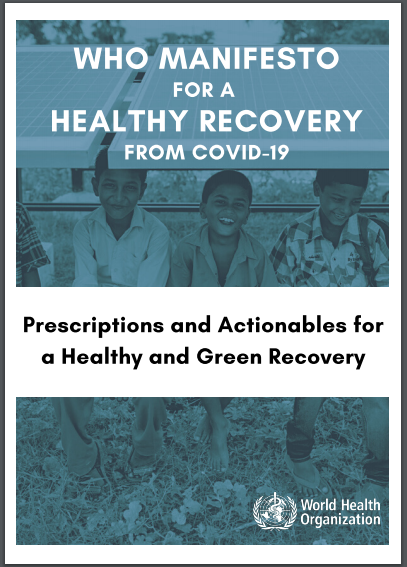WHO prescription 3: Ensure a quick and healthy energy transition
Currently, over seven million people a year die from exposure to air pollution – 1 in 8 of all deaths. Over 90% of people breathe outdoor air with pollution levels exceeding WHO air quality guideline values. Two-thirds of this exposure to outdoor pollution results from the burning of the same fossil fuels that are driving climate change .
At the same time, renewable energy sources and storage continue to drop in price, increase in reliability, and provide more numerous, safer and higher paid jobs. Energy infrastructure decisions taken now will be locked in for decades to come. Factoring in the full economic and social consequences, and taking decisions in the public health interest, will tend to favour renewable energy sources, leading to cleaner environments and healthier people.
Several of the countries that were earliest and hardest hit by COVID-19, such as Italy and Spain, and those that were most successful in controlling the disease, such as South Korea and New Zealand, have put green development alongside health at the heart of their COVID-19 recovery strategies. A rapid global transition to clean energy would not only meet the Paris climate agreement goal of keeping warming below 2C, but would also improve air quality to such an extent that the resulting health gains would repay the cost of the investment twice over.
Actionables
- Rapidly transition away from fossil fuel combustion (oil, coal, fossil gas) for large-scale energy production, and diesel generators for small-scale production.
- Increase the use of, and financial support for, low-emission fuels and energy sources, and renewable combustion-free power sources (like solar or wind); use incentives.
- Increase reliance on the co-generation of heat and power, and distributed energy generation (e.g. mini-grids and rooftop solar power generation).
- Provide support to employees, communities and industries in transitioning from a carbon-intense to a zero-carbon economy in the form of inclusive participatory decision-making, training programmes, social security schemes, long-term transition plans and financial support.


